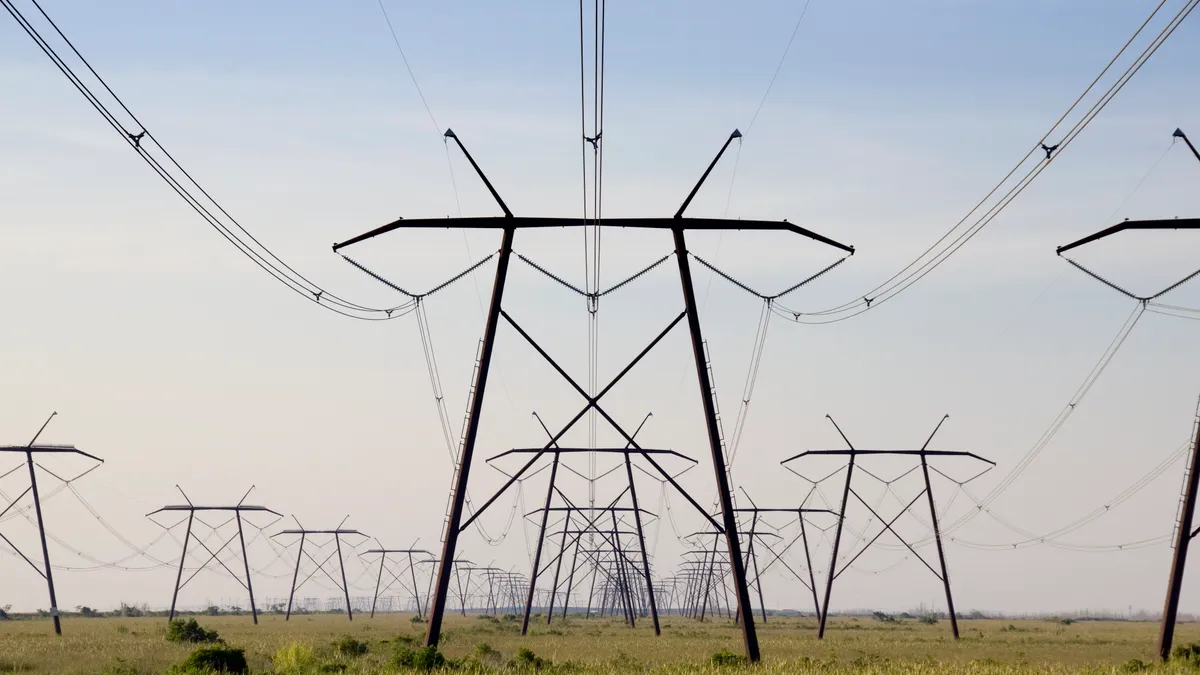Dive Brief:
- A Texas law banning non-incumbent companies such as NextEra Energy, LS Power and Grid United from building transmission in the state violates the U.S. Constitution’s Commerce Clause, the U.S. solicitor general told the U.S. Supreme Court on Monday.
- The Supreme Court should reject a request from the Public Utility Commission of Texas and others that it review an appeals court ruling that the state’s law likely violates the dormant Commerce Clause, according to Solicitor General Elizabeth Prelogar, who represents the U.S. government at the court.
- “States … have no authority to grant monopolies in the interstate electric transmission markets comparable to their authority to grant monopolies in the market for retail distribution of natural gas,” the solicitor general said.
Dive Insight:
The solicitor general’s brief comes as the Federal Energy Regulatory Commission is considering broad changes to its transmission planning rules, including whether incumbent utilities should be given a right of first refusal, or ROFR, to build certain regional transmission lines.
With the United States possibly on the cusp of a transmission boom to bolster reliability and gain access to renewable energy, billions of dollars are at stake in the fight over who should be able to build that infrastructure.
Entergy, ITC Holdings and Xcel Energy’s Southwestern Public Service supported the PUC’s petition in filings at the Supreme Court. In March, the court asked the solicitor general to file a brief on whether the Texas law discriminates against out-of-state economic interests.
The action at the Supreme Court stems from an August 2022 ruling by the U.S. Court of Appeals for the Fifth Circuit that the Texas transmission law likely violates the Commerce Clause, which limits states from interfering in interstate trade, and that a lower court must reconsider its decision that it doesn’t.
The appeals court correctly determined that the Texas law — S.B. 1938 — discriminates against interstate commerce by barring any company without an existing in-state presence from competing to build and operate electric transmission facilities that would be part of the interstate transmission grid, the solicitor general said.
The appeals court decision doesn’t warrant review by the Supreme Court, partly because FERC is considering changing its rules governing ROFRs as part of a pending overhaul of its transmission planning requirements, according to the solicitor general.
“If FERC were to adopt the proposed rule (or some alternative) while this case was pending before the court, that development might require supplemental briefing or otherwise complicate this court’s consideration,” the solicitor general said.
The solicitor general’s brief marks a “significant milestone” for transmission competition, according to the Electricity Transmission Competition Coalition.
“The Texas’ ROFR law was unconstitutional from the outset, and this was affirmed by the Fifth Circuit Court of Appeals,” Paul Cicio, the group’s chair, said Tuesday in a statement. “Electricity transmission competition benefits consumers in the form of lower electricity prices.”
In general, writs of certiorari — petitions asking the Supreme Court to review lower court decisions — have slim chances of being granted, according to Ari Peskoe, director of the Harvard Law School’s Electricity Law Initiative. Those chances become even dimmer when the court seeks the solicitor general’s opinion and she advises it to decline the petition, he said.














